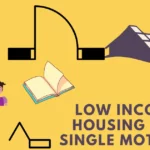The United States has reached a significant limit on its debt, known as the debt ceiling. This could potentially impact aid for Social Security and Medicare for citizens. The main goal is to prevent default on the country’s debt which reached its legal limit on January 19th.
What is Debt Ceiling?
The debt limit, also known as the debt ceiling, is the upper limit on how much money the U.S government can borrow to cover its legal commitments, including essential programs like Social Security, Medicare, military salaries, tax refunds, debt interest and other types of payments.
The government can only borrow money up to the debt ceiling limit, and if it reaches that limit, it must either raise the debt ceiling or default on its debts. This limit is intended to provide a check on government spending and borrowing, but it has been a contentious issue in recent years, as some lawmakers argue that it should be raised in order to avoid defaulting on the government’s debts.

Latest News Regarding Debt Ceiling
On January 13th, Treasury Secretary Janet Yellen sent a letter to House Speaker Kevin McCarthy, Senate Majority Leader Chuck Schummer and other congressional leaders warning of the potential harm that could be caused to the American economy if the issue of debt ceiling is not resolved promptly. Yellen emphasized that people’s livelihoods and global financial stability could be severely impacted if this issue is not addressed quickly. She urged them to take immediate action to safeguard the full faith and credit of the United States. On January 19th, the U.S. Government began taking steps to prevent defaulting on the country’s obligations.
Will Social Security be Affected by Debt Ceiling?
The situation of debt ceiling is dire as the Treasury Department is unable to predict how long they can maintain paying the government’s legal obligations through additional measures. However, Secretary Yellen stated that it is unlikely that funds will run out before June. This is considered a major challenge for Congress and their top priority is to reach an agreement on the federal debt ceiling. In the meantime, Speaker McCarthy has proposed linking the increase of the debt ceiling to spending cuts, which could lead to potential changes in programs such as Social Security and Medicare.
If there are any delays in resolving the debt ceiling, it could affect every individual who receives benefits from programs such as Social Security and Medicare. Hence, social security will be affected…
The Social Security Administration could be constrained and may have to delay payments to ensure that they have enough funds. Medicare payments could also be affected, and other payments such as federal employee salaries could cease until the debt ceiling issue is resolved.
Understand the debt ceiling so you understand why it’s a crisis. pic.twitter.com/6wz1QzqKab
— PoliticsGirl (@IAmPoliticsGirl) January 20, 2023
I am the mind behind nammatech.com. I have an experience of more than 8 years in the digital marketing field. The idea behind starting this blog came when one of my friends find it difficult to fill out the application form. So, I came up with an idea to start a blog on this niche.

![Low-Income Housing for Disabled Adults, Seniors Near me [2024] housing for disabled adults](https://nammatech.com/wp-content/uploads/2023/03/Low-income-housing-for-disabled-with-no-waiting-list-near-me-USA1-150x150.webp)
![Low-Income Housing for Seniors near me in USA [2024] Low-income-housing-for-seniors](https://nammatech.com/wp-content/uploads/2023/03/Low-income-housing-for-seniors-150x150.webp)
![Low-income housing with no waiting list near me in [2024] Low-income housing with no waiting list near me](https://nammatech.com/wp-content/uploads/2023/03/Low-income-housing-with-no-waiting-list-near-me-150x150.webp)



